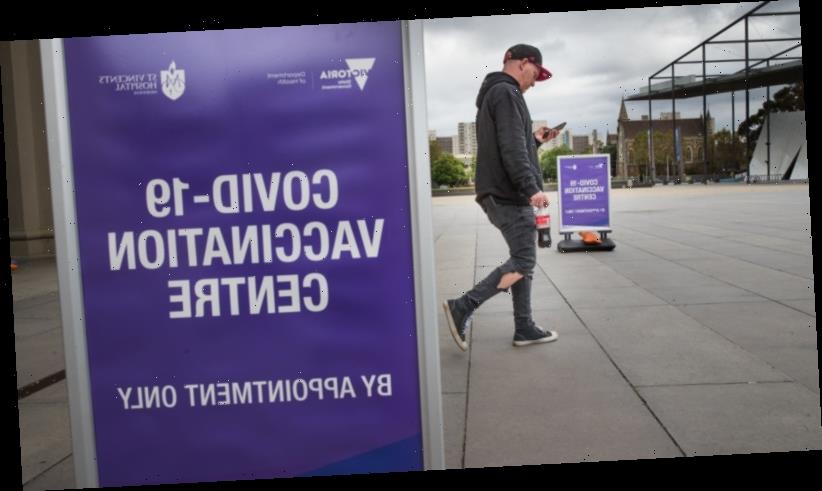It has been a mantra political leaders have oft-repeated through the pandemic: our decision is based on the best of medical advice. That advice has been difficult to follow at times, and on Thursday evening this week, was sure to have sent shockwaves through the Morrison government.
The decision by the Australian Technical Advisory Group on Immunisation to recommend that the government preference the Pfizer vaccine over AstraZeneca’s in adults aged less than 50 years old is a major setback for the vaccination rollout in Australia.
People aged under 50 trying to get their COVID-19 vaccine at the Royal Exhibition Building in Carlton being turned away on Friday. Credit:Jason South
The government is now scrambling to source enough alternative vaccine doses to make up the shortfall as a result of the AstraZeneca decision. The purchase of an extra 20 million doses of the Pfizer vaccine is a good start.
But this is not just a logistical problem.
While federal Health Minister Greg Hunt has urged people to stay calm, this is a tall ask at a time when doubts are being raised about Australia’s major weapon in ridding the nation of COVID-19. At a time when public confidence in taking a vaccine is essential to a successful rollout, this is going to make it more difficult convincing people of the benefits of being vaccinated, no matter what age or gender.
There is a balancing act, as Professor Allen Cheng, who is on the advisory group, articulated on Friday, between the risk of potential side effects brought on by inoculation against the benefit of the vaccine reducing the risk of COVID-19. But giving people statistical comparisons of various options is, in many instances, not going to be enough to allay people’s fears.
It did not take long before the decision had an impact. General practitioners have been inundated by patients cancelling their appointments for AstraZeneca shots. And Melburnians are being turned away from coronavirus vaccination centres because they no longer fit the criteria for getting the AstraZeneca vaccine.
This is a time when the government needs to substantially up its game on getting the most up-to-date information out to the public to rebuild confidence in the rollout. The government announced on Friday that it would indeed begin releasing more thorough and up-to-date information. This is late but welcome.
We need to keep the understandable uncertainty in perspective. The speed by which several vaccines have been developed, approved and manufactured has been remarkable. The rollout of the vaccines are being closely monitored, with the blood clot issues for AstraZeneca a case in point. They have not been concealed in any way. The medical information is being assessed, and judgments being made by a range of experts.
But that is not going to persuade the doubters, and the concerns over AstraZeneca will help promote anti-vaxxer conspiracy theories that do the rounds of social media and the like.
At a time when so many platforms are available for falsities to thrive, this is a battle of information. Australia’s success in containing COVID-19 has been grounded in people’s willingness to follow the best advice that the medical and scientific community has offered.
The urgency of the situation means there is little room for too cautious an approach. While life in Australia, with so few cases of COVID-19, may seem relatively normal, much of the globe is still battling to contain the virus. The Morrison government has little option but to take the new information on-board, adjust as quickly as possible, and then continue with the vaccination rollout. Let’s hope this is the last of the setbacks, but that would seem unlikely.
Note from the Editor
The Age’s editor, Gay Alcorn, writes an exclusive newsletter for subscribers on the week’s most important stories and issues. Sign up here to receive it every Friday.
Most Viewed in National
From our partners
Source: Read Full Article






